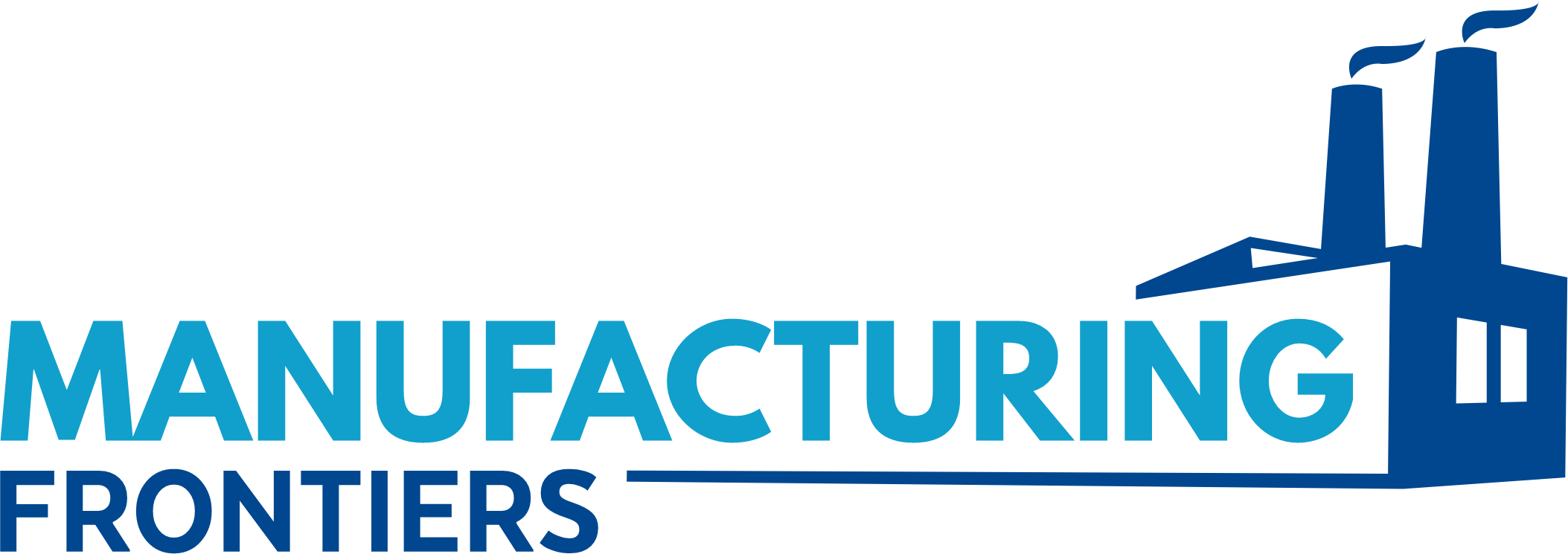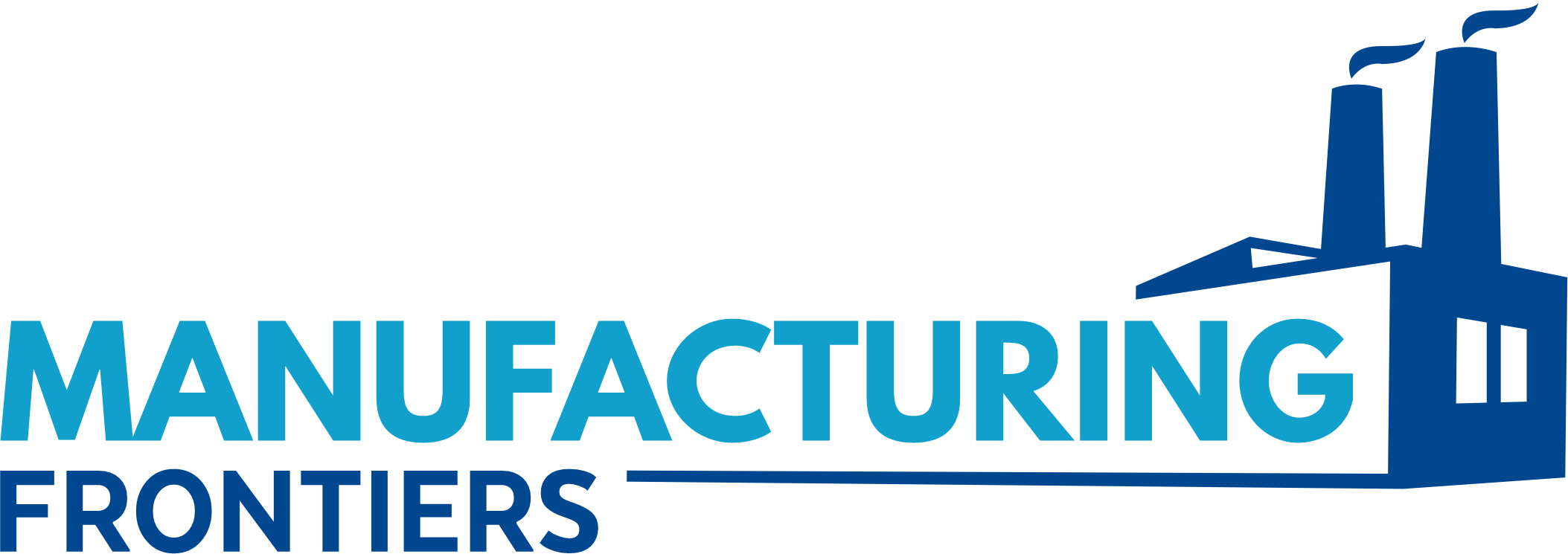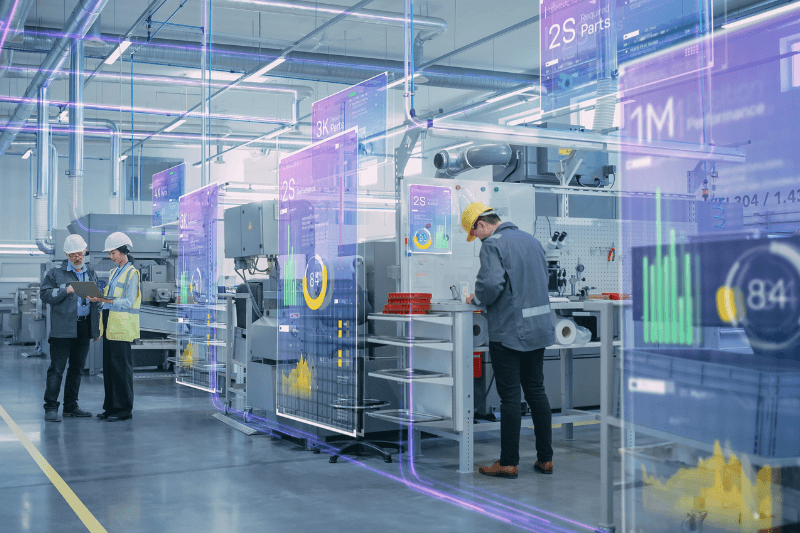quality.
In this blog, we’ll explore how AI is transforming manufacturing, the benefits it brings, and how businesses can harness this powerful tool to unlock their full potential.
1. Optimizing Production Processes
AI is helping manufacturers optimize production processes by enabling smarter automation. By incorporating AI-powered systems, manufacturers can achieve higher efficiency and accuracy in production.
- Predictive Analytics: AI-driven predictive analytics can analyze data from machinery, sensors, and production lines to forecast potential issues before they occur. This allows manufacturers to take preventive measures and avoid costly downtimes, ensuring smooth operations.
- Adaptive Manufacturing: AI systems can dynamically adjust production schedules and operations based on real-time data, such as demand fluctuations or raw material availability. This helps manufacturers meet market demands while minimizing waste and inefficiencies.
- Smart Automation: AI-powered robotics and machines can learn from the environment, adapt to changing tasks, and optimize workflows, leading to faster production cycles and less reliance on manual intervention.
2. Predictive Maintenance and Reduced Downtime
One of the most valuable applications of AI in manufacturing is predictive maintenance. Rather than relying on traditional maintenance schedules, AI uses data from sensors and historical performance patterns to predict when a machine is likely to fail. This enables manufacturers to perform maintenance only when necessary, reducing unnecessary maintenance costs and avoiding unscheduled downtimes.
- Condition Monitoring: AI-driven systems can constantly monitor the condition of machines, detecting subtle changes in temperature, vibration, or pressure that could indicate potential failures. This early detection helps prevent catastrophic breakdowns.
- Optimized Spare Parts Inventory: AI can predict which spare parts are likely to be needed, helping manufacturers keep stock at optimal levels and avoid overstocking or understocking, reducing inventory costs and improving supply chain efficiency.
3. Improved Quality Control
Maintaining product quality is a top priority for manufacturers, and AI is making it easier than ever to ensure that every product meets the required standards.
- Computer Vision for Inspection: AI-powered computer vision systems can automatically inspect products on production lines, identifying defects that might be invisible to the human eye. These systems can detect tiny variations in size, shape, color, or texture, ensuring that only high-quality products reach consumers.
- Automated Testing: AI can be used to automate testing processes, ensuring products undergo rigorous testing without slowing down production. AI can also adapt testing protocols based on previous results, improving accuracy and efficiency over time.
- Real-Time Quality Monitoring: By continuously analyzing data from production lines, AI systems can flag quality issues in real time, enabling manufacturers to take corrective action immediately and prevent defects from accumulating.
4. Supply Chain Optimization
AI plays a crucial role in optimizing supply chains, helping manufacturers improve inventory management, reduce lead times, and enhance delivery accuracy.
- Demand Forecasting: AI can analyze historical sales data, market trends, and external factors (such as weather or political events) to predict future demand more accurately. This helps manufacturers plan production schedules, reduce overproduction, and avoid stockouts.
- Supplier Relationship Management: AI can evaluate supplier performance, quality, and delivery timelines, helping manufacturers choose the best suppliers and maintain healthy, efficient relationships. AI can also predict potential disruptions in the supply chain and suggest alternative suppliers or solutions.
- Logistics and Routing Optimization: AI-powered logistics systems can analyze traffic patterns, delivery schedules, and vehicle capacity to optimize routes, reduce fuel consumption, and ensure on-time deliveries. This helps manufacturers reduce transportation costs and enhance customer satisfaction.
5. Energy Efficiency and Sustainability
Sustainability is a key focus for manufacturers today, and AI can play a significant role in improving energy efficiency and reducing environmental impact.
- Energy Usage Optimization: AI can monitor energy consumption patterns across manufacturing facilities and identify areas where energy can be saved. By adjusting heating, cooling, lighting, and machine operation based on real-time data, AI helps reduce energy waste and lower carbon emissions.
- Waste Reduction: AI can analyze production processes to identify inefficiencies or areas where raw materials are being wasted. This data can be used to adjust production methods and reduce scrap, leading to less waste and a smaller environmental footprint.
- Carbon Footprint Tracking: AI-driven systems can track a manufacturer’s carbon footprint across its entire value chain, from sourcing raw materials to production and distribution. By identifying areas of high emissions, manufacturers can implement strategies to reduce their environmental impact.
6. Enhancing Customization and Flexibility
One of the greatest advantages of AI in manufacturing is its ability to enhance customization and flexibility in production.
- Personalized Products: AI enables manufacturers to respond to consumer demand for personalized products. By analyzing customer preferences and historical data, AI can help manufacturers adjust their processes to produce customized products at scale, without compromising quality or efficiency.
- Flexible Manufacturing Systems: AI-driven flexible manufacturing systems allow manufacturers to quickly reconfigure production lines to accommodate new product designs or changes in demand. This helps businesses remain agile in a fast-moving market.
7. Workforce Augmentation and Safety
AI can also improve workplace safety by reducing risks and enhancing decision-making for employees on the factory floor.
- Safety Monitoring: AI-driven sensors and cameras can monitor worker activities and identify potential safety hazards in real time. If a worker is operating machinery incorrectly or in an unsafe manner, AI systems can issue alerts or pause operations to prevent accidents.
- Training and Assistance: AI-powered systems can assist workers by providing on-the-job training and guidance. Augmented reality (AR) and virtual reality (VR) technologies, combined with AI, can offer immersive training experiences, helping workers learn complex tasks safely and efficiently.
- Collaborative Robots (Cobots): Cobots, which are AI-powered robots designed to work alongside humans, are helping improve workplace safety by performing hazardous tasks and reducing the physical strain on workers. Cobots can assist in lifting heavy loads, handling dangerous materials, or performing repetitive tasks.
8. Data-Driven Decision Making
AI can unlock valuable insights from the vast amounts of data generated in manufacturing. By analyzing production data, supply chain information, and market trends, AI can help manufacturers make informed, data-driven decisions.
- Real-Time Analytics: AI-powered systems can provide real-time analytics on production performance, allowing managers to make quick decisions based on up-to-the-minute data.
- Advanced Reporting: AI can automate reporting processes, generating insightful, easy-to-understand reports on production efficiency, energy usage, quality control, and more. This helps manufacturers track performance metrics and make adjustments to improve operations.
Conclusion
Artificial Intelligence is no longer a futuristic concept; it’s here, and it’s revolutionizing the manufacturing industry. From predictive maintenance and quality control to supply chain optimization and energy efficiency, AI offers a multitude of benefits that can drive profitability, sustainability, and competitiveness. As manufacturers continue to embrace AI technologies, the potential for innovation and transformation in the sector is limitless.
The key to unlocking AI’s full potential lies in understanding how these technologies can be tailored to the unique needs of each business. Manufacturers who invest in AI today will be better positioned to thrive in an increasingly competitive and fast-paced market, ultimately leading to smarter, more efficient, and more sustainable manufacturing processes.









